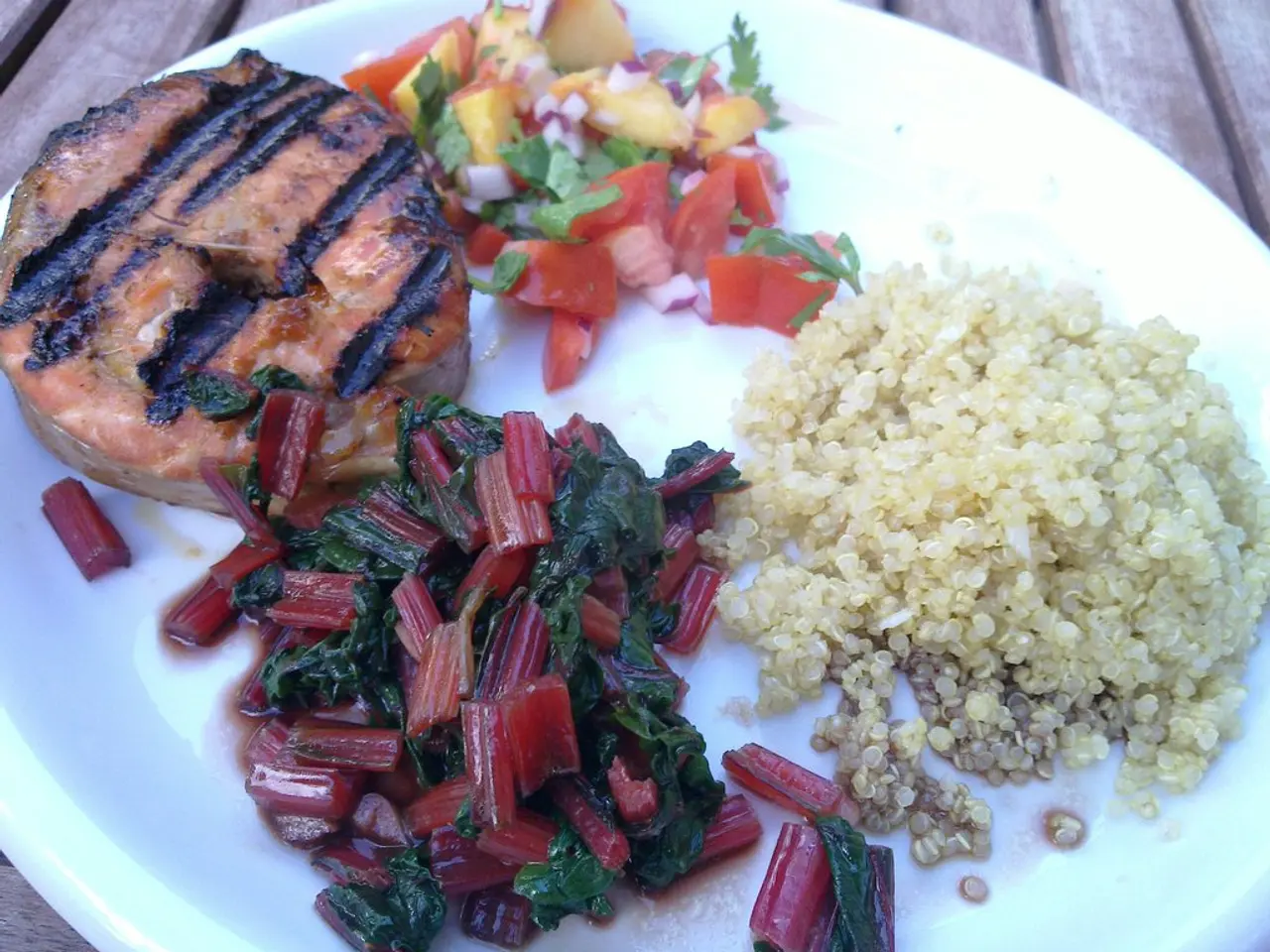Saving Cash Through Smart Cooking Strategies
In the bustling cities, where expenses can quickly mount, students are often in search of ways to stretch their budgets while maintaining a nutritious diet. Here, we explore several strategies that can help students save money on groceries without compromising on health.
First and foremost, creating a shopping list and meal planning are essential steps to avoid impulse buys and ensure a balanced diet. By planning meals for the week and making a list of necessary ingredients, students can focus on healthy items that are on sale and in season, optimising their grocery list.
Bulk buying and seasonal produce are other effective strategies. Purchasing items like rice, lentils, and canned goods in bulk can help save money, as can choosing fruits and vegetables that are in season and locally sourced. These options are often cheaper and fresher, making them a smart choice for students on a budget.
Cooking meals at home instead of buying takeout is not only more cost-effective but also healthier. Preparing meals in advance using affordable staples like oats, lentils, and seasonal vegetables is a great way to save time and money. Meal prepping over the weekend can help reduce the need to buy food during the week, further saving money.
For those looking to adopt a plant-based diet, focusing on plant-based meals can be a cheaper alternative to meat-based options. Whole grains and starchy vegetables are key components of a plant-based diet, providing ample nutrition at a lower cost.
Sharing meals and taking advantage of student discounts are other ways students can save money. Consider sharing meal preparation with roommates to split costs and reduce food waste. Many stores and apps offer student discounts on groceries, so it's worth asking for details.
Food saving apps, such as Fetch, can also help students save money. These apps allow users to earn points redeemable for grocery gift cards, helping to reduce costs. Utilising leftovers is another way to save money and reduce food waste.
Additional tips include shopping alone, avoiding impulse buys and sticking to the list. Regularly checking for sales and comparing prices between stores can help find the best deals. Many supermarkets have sections for food close to its best before date, sold at up to -70% off the original price.
Universities often have canteens offering daily affordable lunch menus, including vegan options. Purchasing seasonal and local food can be fresher, more nutrient-rich, and less expensive, as it requires fewer transport routes. The Koro Drugstore, an online shop for durable food in efficient storage packs, delivers essentials right to the door.
Starting themed days with friends where you take turns cooking meatless meals can help save money and provide a fun social experience. Overall, by implementing these strategies, students can save money on groceries while maintaining a healthy diet.
- By utilizing food-and-drink apps like Fetch, students can earn points for grocery gift cards, helping to stretch their budget while shopping for necessary items.
- Creating a travel itinerary that includes budget-travel options and exploring local food markets can offer a taste of diverse cuisines while keeping expenses manageable.
- Embracing a lifestyle that incorporates healthy-cooking techniques, such as meal planning, bulk buying, and focusing on plant-based meals, can support a nutritious diet without excess spending.




